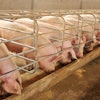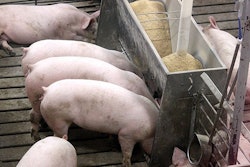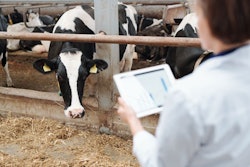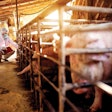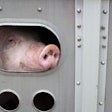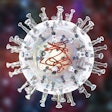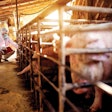
New test, vetted by Plum Island scientists, makes near real-time detection of ASF possible
A promising new test for African swine fever (ASF) that uses DNA to detect the virus in real time could enable regulators to begin widespread, rapid screening for ASF in institutional and industrial settings.
Researchers at Plum Island have confirmed they tested a portable DNA device, manufactured by Nebraska-based MatMaCorp, to determine that it could be used to screen for ASF. According to company founder Abe Oommen, MatMaCorp was able to adapt its pre-existing technology upon request to detect ASF in as little as three hours, potentially opening the door to broader testing initiatives.
The MatMaCorp test DNA test kit consists of a portable electronic device that uses florescent dyes to determine if particular sequences of DNA are present in a given sample. For example, the kit has been used to check for certain genetic traits or samples.
Because the ASF virus is comprised of DNA, it was possible to program the device to dye and detect whether the ASF DNA sequence is present in a sample of meat, saliva, bone marrow or another source of tissue where the virus is potentially present.
Laboratories also often use DNA to confirm the presence or absence of ASF, but that requires actually getting a sample to the lab — which in many settings may require six or more hours of travel, Oommen said. The portable device, he said, is able to return test results on-site in as little as three hours.
“Even if you take it out to a remote area and you’re looking at feral pigs or something, you can find a sample and test it right then and there,” Oommen said, resulting in significant time savings.
While the device could be used to test for ASF on farms, Oommen said regulatory and institutional uses have so far expressed the most interest in the test. The device, he said, could be used to institute the kind of broad-scale screening that regulators trying to stop the spread of the disease might enact. For example, pig meat could be rapidly tested at the processing plant to determine if ASF is present in a given area. Rapid detection is thought to be key to isolating and eliminating an outbreak of ASF before it spreads further.
Unfortunately, Oommen said, further discussion about the implementation of the portable DNA test to combat ASF has been put on hold due to the coronavirus (COVID-19) pandemic.
View our continuing coverage of the African swine fever outbreak.

